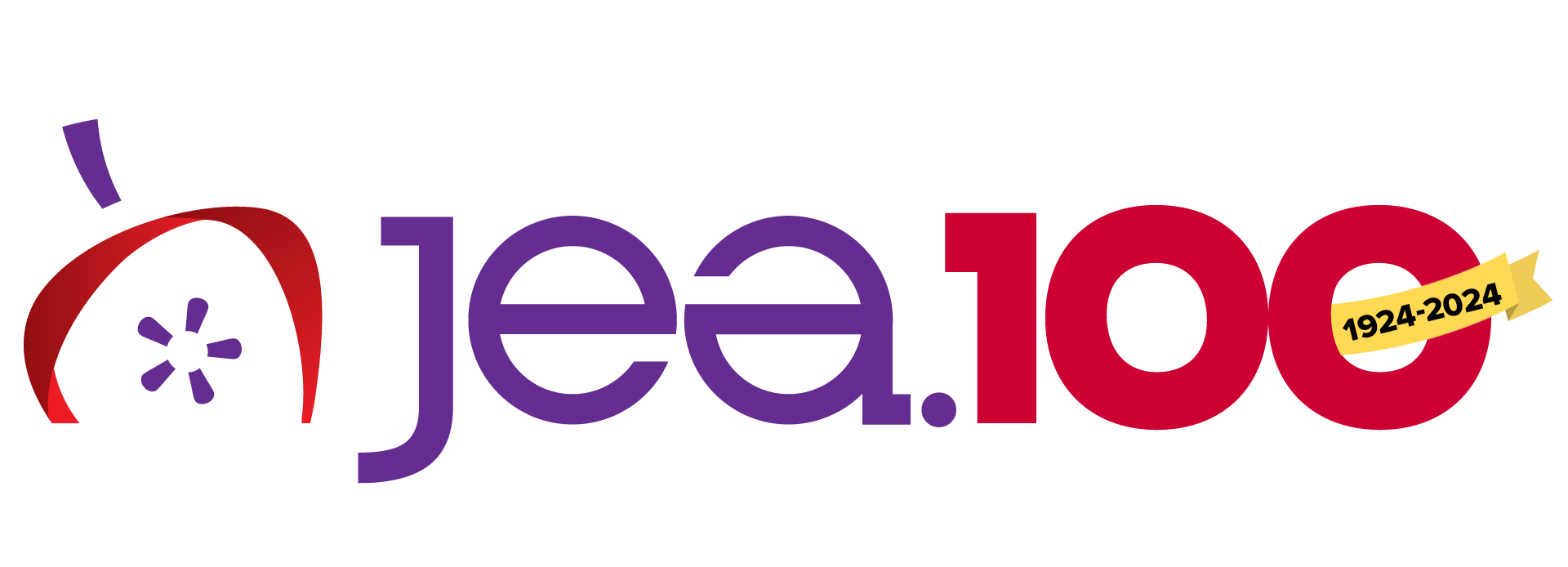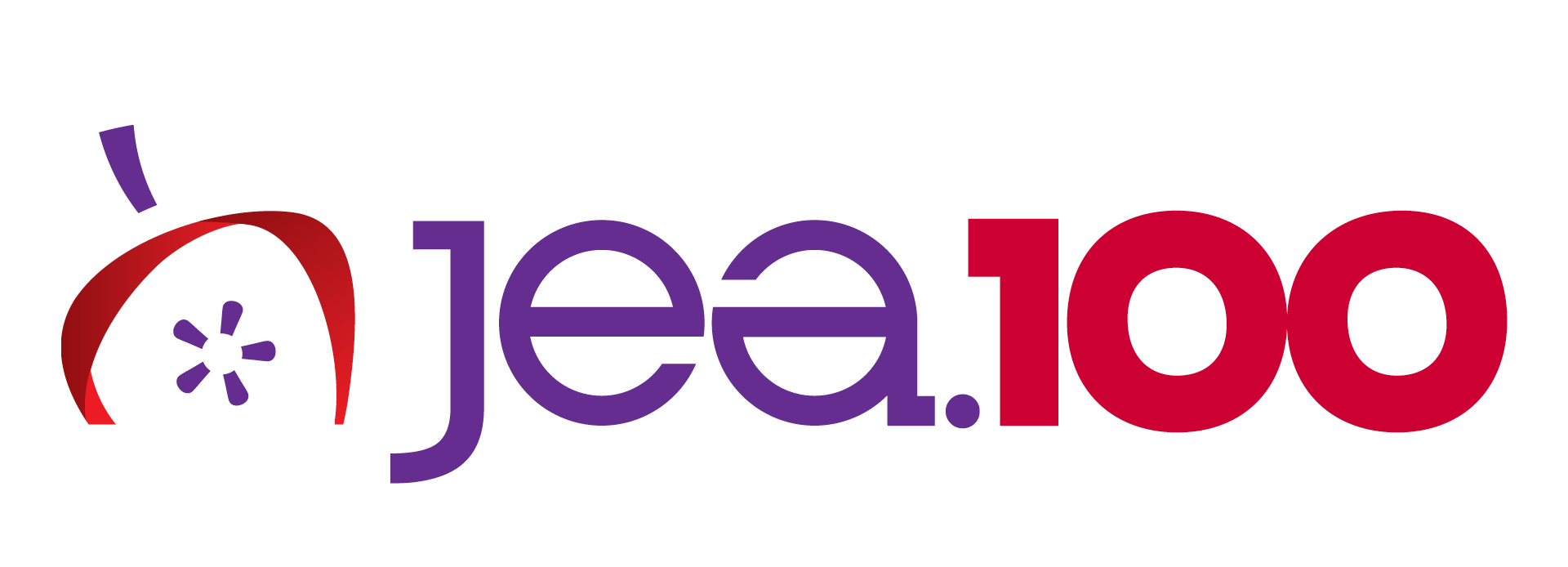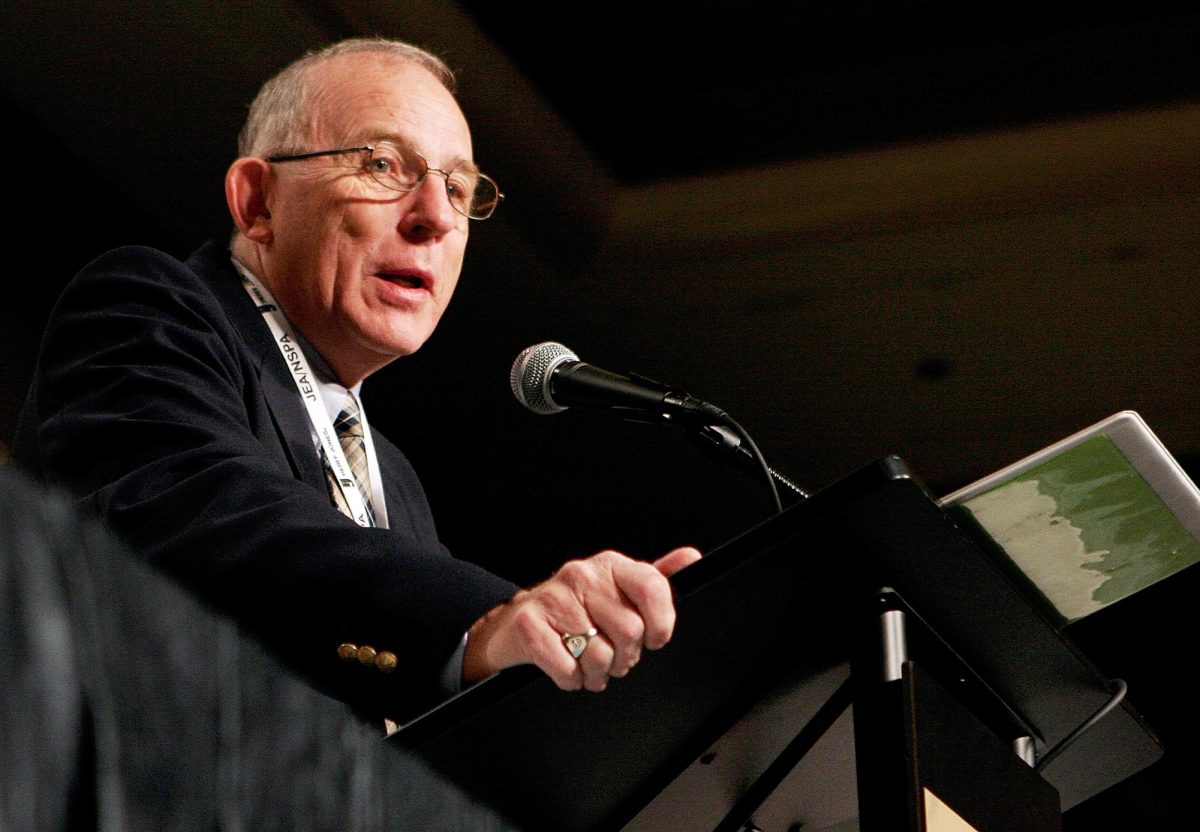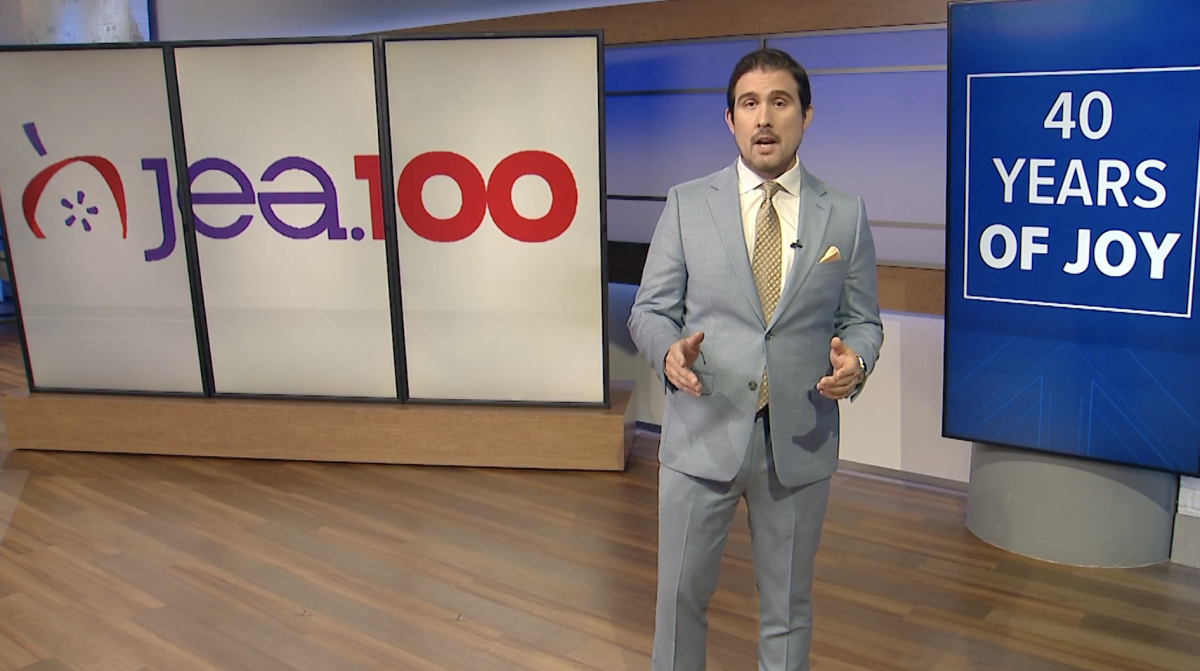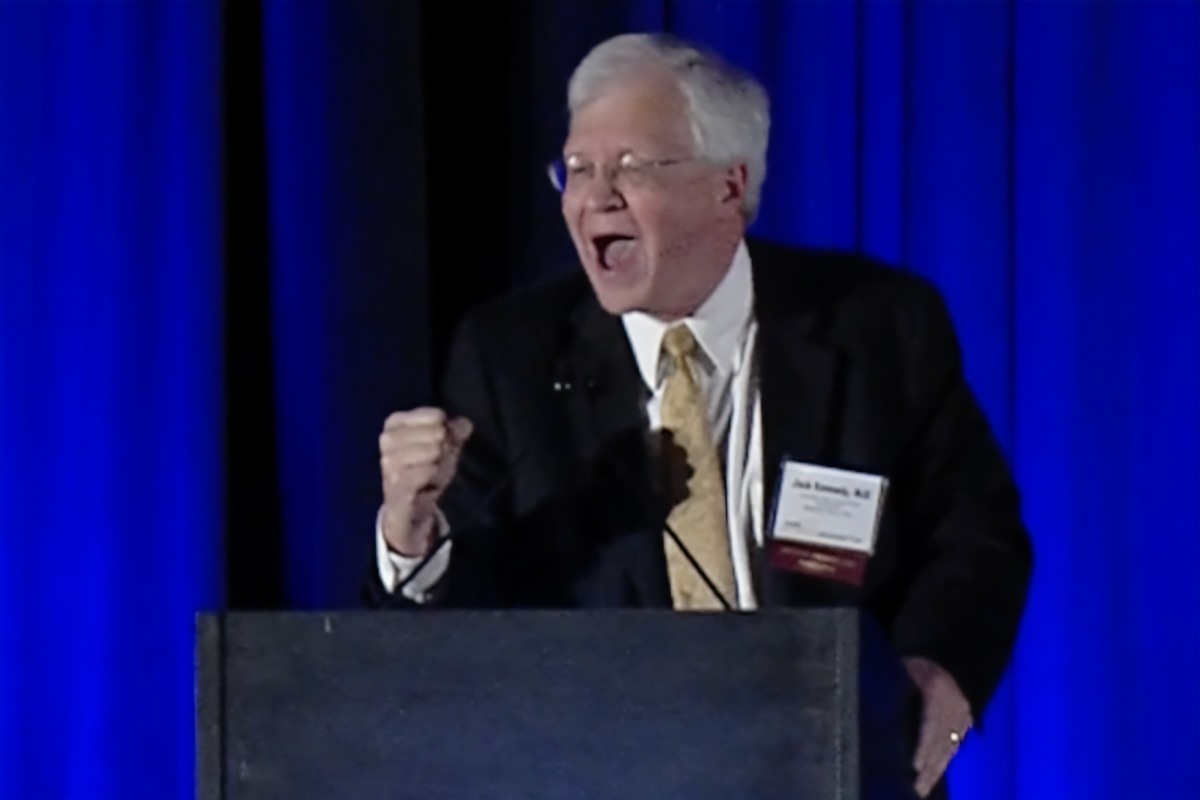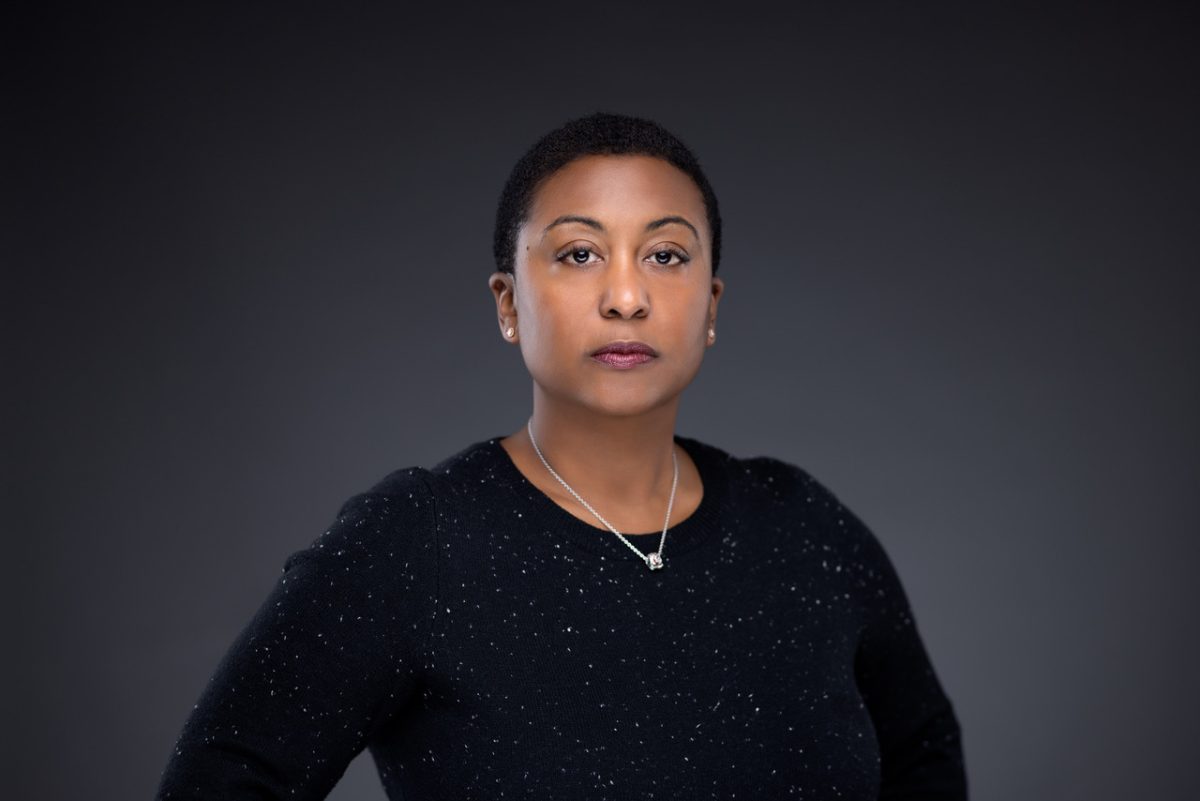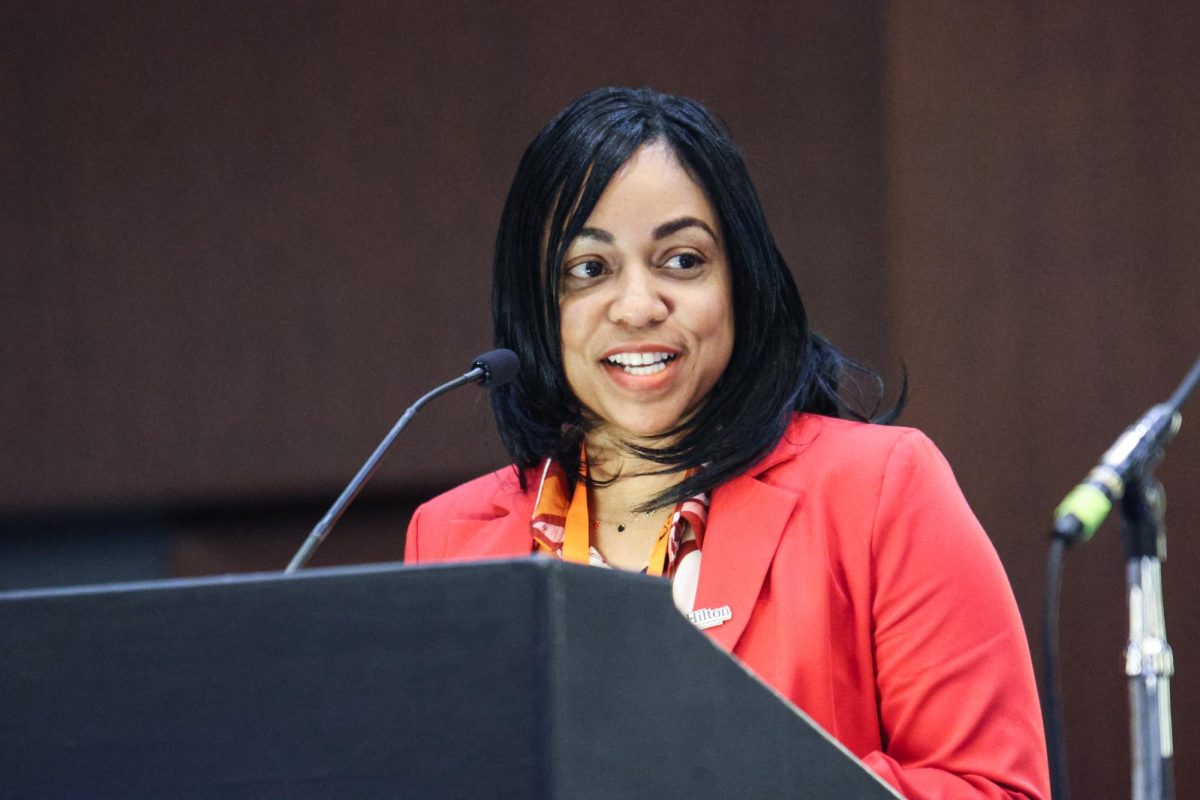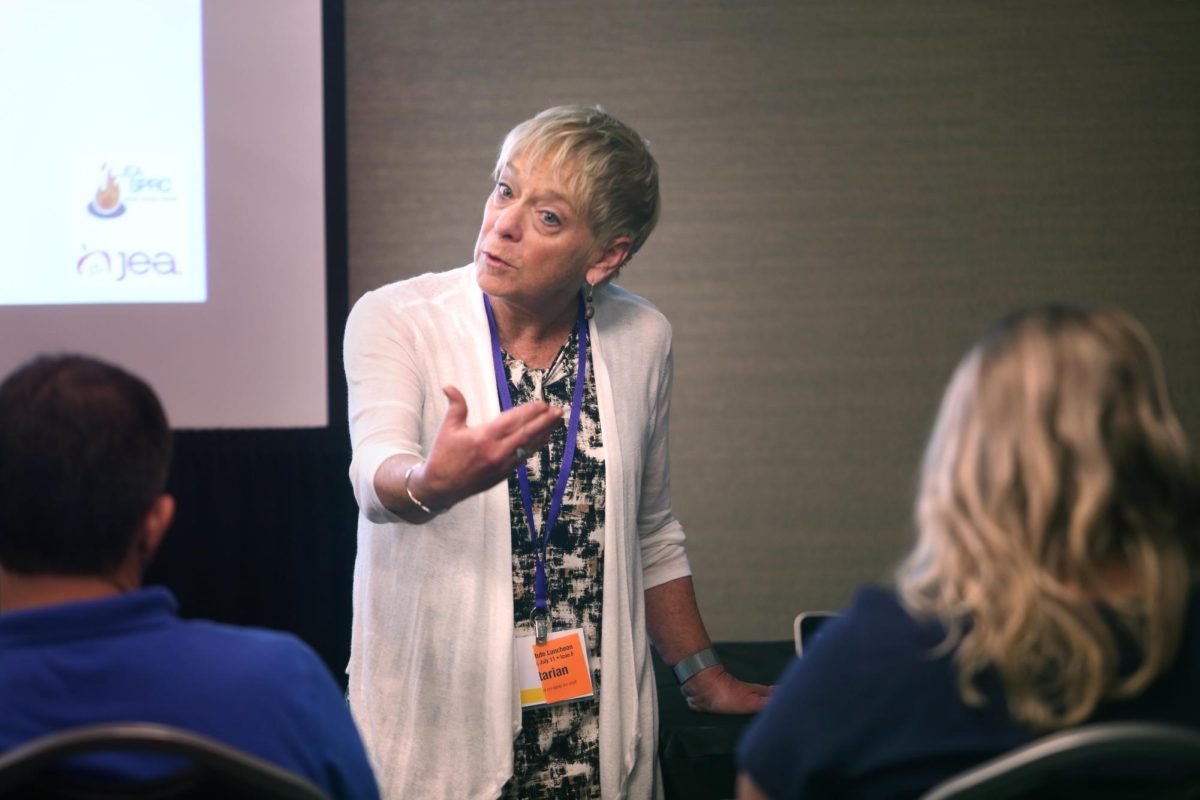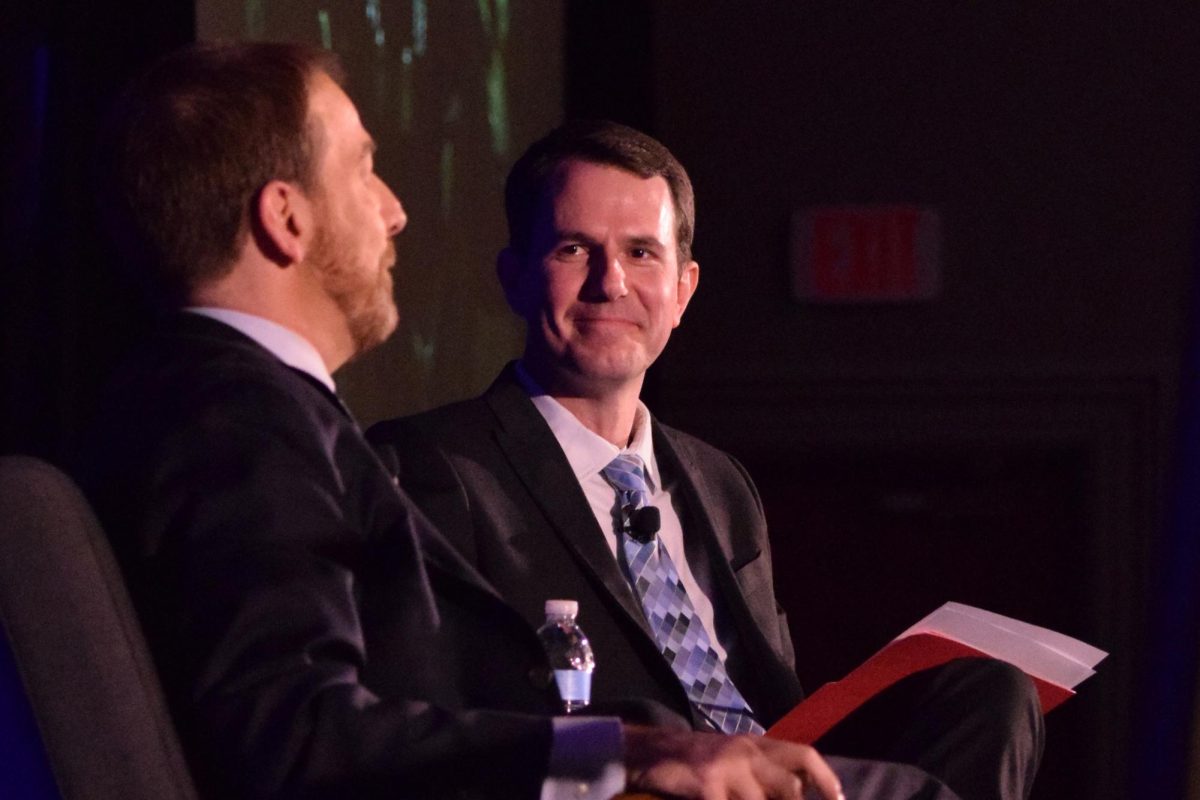He didn’t have a degree in journalism and his first job was teaching journalism at North Kirkwood (Missouri) Junior High School, but for more than 50 years H.L. Hall’s influence on scholastic journalism has been huge. In addition to teaching thousands of students as a popular convention and workshop speaker, he continues to influence newspaper and yearbook staffs with nearly 7,000 publication critiques.
Known for his positive attitude as well as his expertise, he worked to improve every situation and every scholastic journalism program he encountered. He contributed so much that in 1991 he received the Carl Towley award from JEA. From 1998-2003, as president of JEA, he led the charge to grow conventions and develop programs to bring respect to scholastic journalism programs and teachers.
When did you become involved with scholastic journalism and JEA?
Since I did not have a degree in journalism and had never taken a journalism class, I knew I had to learn as much as I could as quickly as I could. My father-in-law was a journalism teacher, and I went with him to a JEA convention in Chicago. I think I was probably the only junior high teacher there, but I don’t know that for sure. The next year I took eight students to the Chicago convention. In those days the conventions were always in Chicago and always during the Thanksgiving weekend. That was the beginning of my involvement with JEA.
What additional learning opportunities did you discover?
I learned about a five-week summer institute. Dow Jones Newspaper Fund sponsored the program, which was at the University of Minnesota in 1965. I applied, and I was accepted. I was the only junior high teacher there. It was the most valuable five weeks. Our instructor worked us, but we learned so much. As a result, I wrote Junior High Journalism, which was my first text. It wasn’t long until JEA started having two conventions a year, and I attended over 50 of those. The things I learned from other advisers, as well as from the sessions taught, made every convention more than worthwhile. I know how much I learned, so the next step was to become a member of the JEA board, so I could help develop programs to help other teachers.
Helping other teachers has always been a focus for you. Is there a time or program that seemed particularly beneficial?
My favorite memories were the times the Student Press Rights Commission met as a group at the Poynter Institute in St. Petersburg, Florida. Besides being a fun group to work with, I think we came up with ideas that would help student journalists and their advisers learn how to work against censorship at their schools.
What do you see as some of the best contributions of your presidency?
Candy Bowen had created a Listserv for board members and when I became president, I asked her to start one for the entire membership. I asked for board approval for her to do that. The board approved, and she accepted. That listserv is still being used today. It’s a great way for members to communicate with each other.
While I was president, Linda Puntney and I started holding sessions near the end of each convention for advisers to give us feedback about the event. We received some good suggestions that Linda put into effect for upcoming conventions. Speaking of conventions, I had to work hard to convince Linda, the JEA board and NSPA to hold a convention in Nashville. That convention was one of the best attended ever. It’s great JEA is returning to Nashville in 2025.
Going forward, what should JEA focus on?
Continue to create all the great curriculum courses for advisers. JEA also needs to come up with ideas of how teachers can work with AI. AI concerns me, and I think it will be a concept that JEA has to get a handle on to help advisers know how to use it and how to avoid potential problems.
Final thoughts to make us shout Ye-es! Ye-es! Ye-es!
Thanks to all past and current JEA board members. The organization has grown tremendously since my first convention in 1963, and that’s because dedicated board members keep working hard to come up with the ideas that benefit all members. Keep up the good work. There have been so many great ideas created by recent boards — ideas that benefit all advisers. It makes me wish I were still advising.
